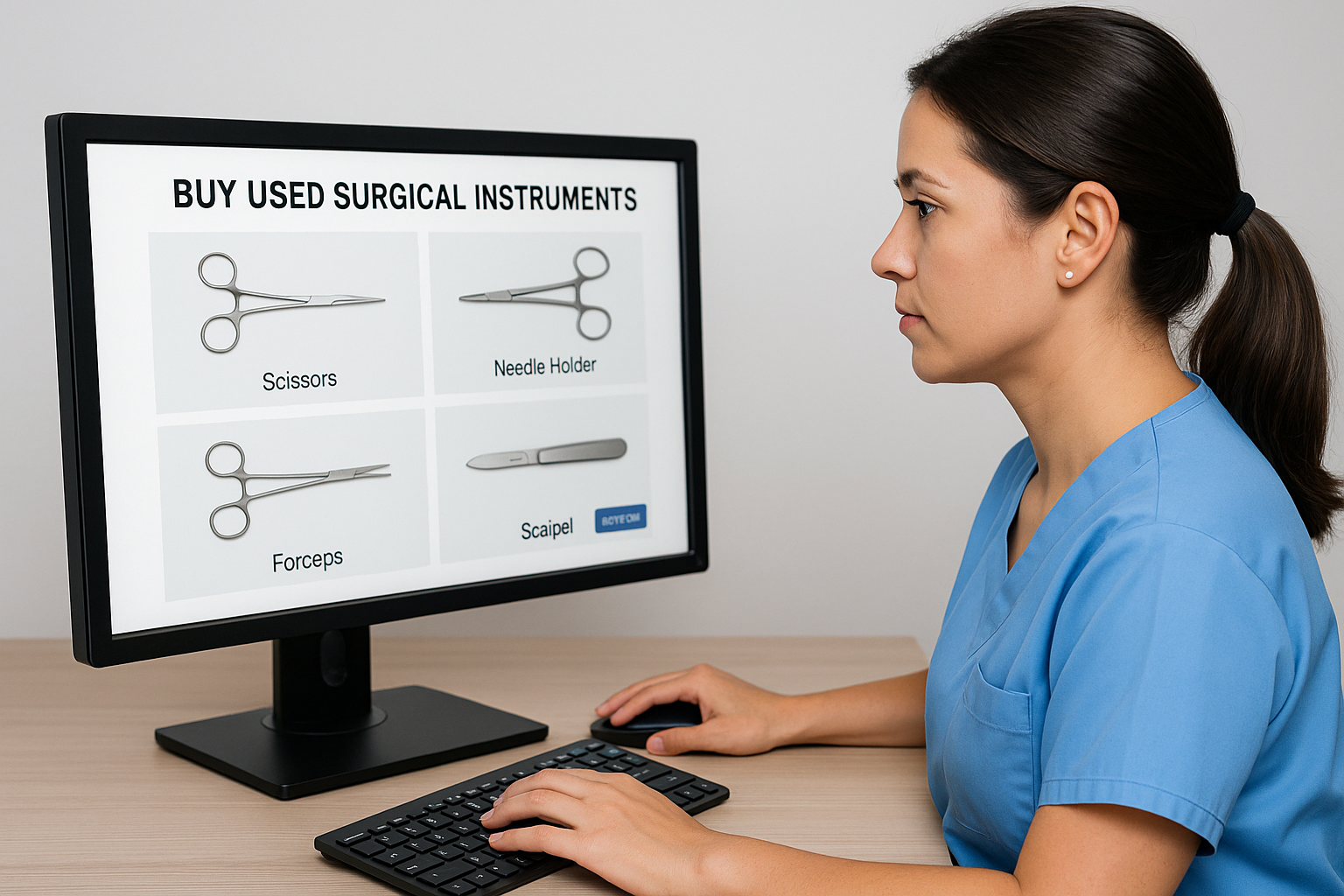How to Purchase High-Quality Used Surgical Instruments
Posted by Carlos Rosado on Jun 28th 2025
How to Purchase High-Quality Used Surgical Instruments for Your Practice or Facility
Investing in high-quality used surgical instruments can be a smart and strategic decision for hospitals, surgery centers, and private practices. With proper selection, used instruments can offer the same performance and durability as new ones but at a fraction of the cost. However, not all used instruments are created equal. This guide will walk you through the essential steps and considerations when purchasing used surgical instruments to ensure safety, reliability, and value.
Understand Why You're Buying Used
Before diving into the purchasing process, clarify why you are opting for used instruments:
-Cost savings: Used instruments often cost 30-70% less than new ones.
-Expanding inventory: Useful for clinics and facilities looking to expand capabilities without a full investment.
-Backup or training sets: Ideal for non-primary use where lower wear-and-tear is acceptable.
2. Know What You Need
Before shopping, make a detailed list of required instruments:
-Type: General surgery, orthopedic, ENT, ophthalmic, laparoscopic, etc.
-Brands preferred: (e.g., Aesculap, Karl Storz, Medtronic)
-Specifications: Sizes, handle types, locking mechanisms, tip configurations.
Having a specific list helps suppliers match you with inventory more accurately and minimizes the chance of miscommunication or error.
3. Choose Reputable Suppliers
Partnering with the right seller is critical. Look for suppliers that:
-Specialize in surgical instruments, not just general medical equipment.
-Offer detailed product descriptions and photos.
-Provide clear warranty and return policies.
-Have positive reviews or references from other healthcare providers.
4. Ask the Right Questions
Before finalizing a purchase, ask suppliers:
-What is the instrument's condition? (Refurbished, reprocessed, like-new, good, fair, etc.)
-Was it tested for functionality?
-Has it been cleaned or sterilized?
-Are there any visible defects or wear?
-Is a return or exchange possible if it doesn’t meet expectations?
5. Inspect Before Use
If possible, inspect the instruments in person. If purchasing online or remotely:
-Request close-up photos showing the instrument's jaws, hinges, and tips.
-Conduct a visual inspection for rust, cracks, corrosion, and misalignment.
After Receiving:
-Perform a mechanical test (opening/closing, locking/unlocking).
-Send them through your standard cleaning and sterilization process before clinical use.
6. Pay Attention to Material and Markings
High-quality surgical instruments are typically made from German or Japanese stainless steel and clearly marked with:
-Manufacturer's name
-Instrument model or part number
-Country of origin
Avoid instruments with no markings or those made of unknown alloys, as these may degrade faster and pose patient safety risks.
7. Consider Buying in Sets
For general or specialized procedures, buying instruments in complete sets can:
-Save money compared to buying individually.
-Ensure compatibility of pieces.
-Simplify inventory management.
8. Compare Pricing – But Don’t Always Go for the Cheapest
Cheaper doesn’t always mean better. Weigh cost against:
-Instrument condition
-Brand reliability
-Seller reputation
-Warranty and support
Paying slightly more for a verified, tested product from a reliable source can save money in the long run by reducing replacement costs and preventing surgical complications.
9. Maintain a Relationship with Your Supplier
Once you find a supplier you trust, maintain an ongoing relationship. This can offer benefits like:
-Access to exclusive inventory
-Faster fulfillment
-Custom requests or bundling discounts
-Priority on high-demand items
Suppliers who understand your needs can often alert you when items matching your preferences become available.
Final Thoughts
Purchasing used surgical instruments doesn’t have to be risky if done correctly. By understanding your needs, asking the right questions, and partnering with a reputable supplier, you can get high-quality, durable tools that serve your patients just as well as new instruments—without the premium price tag. In a time when healthcare budgets are tighter than ever, smart purchasing decisions like this can make a big difference in maintaining excellence while managing costs.
If you're looking for a trusted source of used and new surgical instruments, contact Alpha Biomedical Sales to learn more about our inventory, quality standards and pricing.


